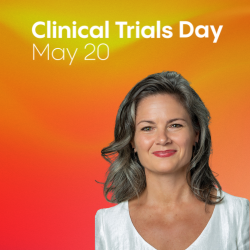The global pandemic has soundly proven its effectiveness at raising people’s awareness of how clinical trials function and why they are important for much more than just the development of novel COVID-19 vaccines and better treatments for the disease’s symptoms. However, what does the future look like for actually getting more would-be participants in medical studies past the “interested” phase and into the “volunteer” phase for more types of trials and for more kinds of therapies? Three recent commentaries from clinical research experts may provide some clues.
A roundup of “Clinical Research Trends & Insights for 2022” from WCG includes input on participation issues from Jill Johnston, president for study planning and site optimization with the company and a frequent contributor to ACRP blogs and the pages of Clinical Researcher. “The clinical research industry will benefit from further educating the public about the rigor of the trial process and the quality of the experience,” she writes. “It will require more participants to tell their stories, allowing more visibility into the overall drug development process. Clinical providers will start to speak the language of clinical research, and hospital networks will continue to connect to systems, allowing clinical trials to become more of a care option for patients.”
Meanwhile, Dr. Harsha Rajasimha, founder and CEO of Jeeva Informatics, has expressed his concerns about how recruitment problems are a leading cause of delays in clinical trials, noting how, earlier this year, approximately 1,000 organizations involved in medical research announced delays or disruption in planned clinical trials, the bulk of them caused either by slow enrollment or complex data handling issues. The solution to these problems, he suggests, and with it the potential for reduced delays and greater study effectiveness, lies in the adoption of a cloud-based decentralized clinical trial (DCT) platform approach.
“Rather than tether prospective patients to a central, usually urban medical facility, a [DCT enables two-way] communication between study sites and participants, primarily through the Internet,” Rajasimha writes. If empowered by a “bring-your-own-device eClinical” platform, he notes that “anyone with access to a cell phone, or a tablet, or a PC, can use it to interact with the study investigator teams by video, telemedicine, SMS, or e-mail. Among other benefits…this approach enables sponsors to increase both diversity and enrollment by recruiting through social media platforms.”
The potential gains to be realized through digital engagement with study volunteers is also on the mind of Clariness GmbH, which has announced a multi-year partnership with Boehringer Ingelheim Pharma GmbH & Co. KG to find and recruit patients through its patient portal. In the announcement, Moritz Kloss, vice president of ClinLife Registry at Clariness, highlights the importance of “matching the right patients with suitable clinical studies across multiple indications. This is one of many steps to make clinical trials more accessible and patient-friendly, and [to] advance medical progress.”
Edited by Gary Cramer



